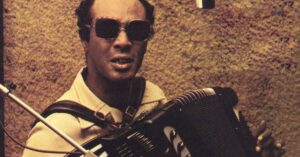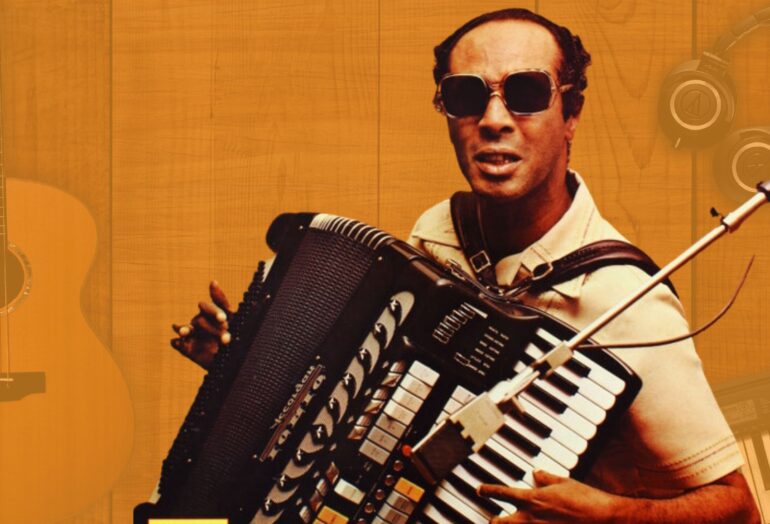The Haitian music community and the nation at large mourn the passing of a truly extraordinary soul, Joe Jacques, who died today, leaving behind a legacy that will resonate for generations. Born on May 25, 1936, in Gonaïves, Haiti, Joe Jacques was more than a musician. He was a visionary, a teacher, a poet with keys beneath his fingers, and a heart as vast as the Caribbean sky he never saw.
Blind since birth, Joe Jacques never witnessed a sunrise with his eyes, but somehow, he managed to light the way for all of us. His life was a testament to the strength of the human spirit, the power of music, and the grace of perseverance.
Joe’s journey began at the St-Vincent School for the Handicapped in Port-au-Prince. Between 1955 and 1959, he studied at the Perkins School for the Blind in Boston, Massachusetts, a chapter of his life that expanded his worldview and deepened his commitment to using music as a tool for communication and connection. Upon returning to Haiti, he spent 11 years as an English teacher, even serving on the faculty of the Haitian American Institute, but it was clear that music was his soul’s calling.
 In 1972, while vacationing in New York, Joe Jacques embraced his destiny and became a full-time professional musician. With his sacred accordion and unforgettable voice, he touched hearts across borders and generations. Songs like “Timidité,” “Profese Lekòl,” “Ma Petite,” and “La Dernière Fois” became anthems of emotion,pillars of a musical bridge he built between himself and the world. Through lyrics layered with longing, humor, reflection, and deep humanity, Joe invited us into a universe many call “Joe-Jacquesville.”
In 1972, while vacationing in New York, Joe Jacques embraced his destiny and became a full-time professional musician. With his sacred accordion and unforgettable voice, he touched hearts across borders and generations. Songs like “Timidité,” “Profese Lekòl,” “Ma Petite,” and “La Dernière Fois” became anthems of emotion,pillars of a musical bridge he built between himself and the world. Through lyrics layered with longing, humor, reflection, and deep humanity, Joe invited us into a universe many call “Joe-Jacquesville.”
His music has often been compared to the American blues. He sang of love, sorrow, regret, hope,never to entertain pity, but to elevate the soul. His compositions were never simple songs. They were testimonies. And like true testaments, they held the power to humble us, to make us grateful, and to force reflection.
While some critics dismissed the melancholic tones of his earlier work, Joe never apologized. He once explained that the sadness stemmed from his internal struggle to accept his blindness. Eventually, he made peace with it. From that point forward, he set his sights,yes, his sights,on exploring themes of human connection and spiritual intimacy. He famously shared that if he were ever granted the gift of vision, the first things he would want to see were the sky, the sunrise, a rainbow, and beautiful women. Then, he smiled and reminded us, “One can only truly see through the heart.”
Musician Garry Talent, lead singer of Moonkool, once stated that “Joe-Jacquesville is not a physical place. It’s a different way of seeing the world.” That poetic sentiment perfectly captures Joe’s eternal impact. He gave us more than melodies,he gave us new ways to feel, to love, and to endure.
Joe Jacques is survived by his children, countless students, friends, admirers, and the many artists he inspired. His life, shaped by hardship and elevated by art, remains a beacon for all who dare to follow their purpose despite the odds.
Today, we mourn, but we also celebrate. We honor a man who, despite never seeing light, became one of Haiti’s greatest sources of it.
Rest in peace, Joe Jacques. Your music plays on.
If anyone would like to support the family and help continue Joe’s legacy, please visit the Joe Jack Legacy Foundation at www.joejacklegacyfoundation.com to make a donation.

